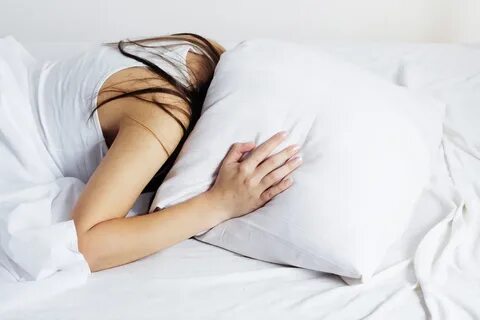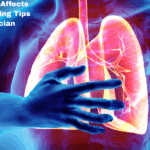
Sleep is a fundamental aspect of our health and well-being, yet many women experience difficulties with sleep at some point in their lives. From hormonal fluctuations to lifestyle factors, various issues can disrupt a woman’s ability to get a good night’s rest. In this comprehensive guide, we will explore some of the most common sleep disorders affecting women, their causes, symptoms, and potential treatment options.
- Insomnia: Insomnia is one of the most prevalent sleep disorders among women. It involves having trouble falling asleep, staying asleep, or waking up too early and not being able to go back to sleep. Women are more likely to experience insomnia than men, and it often becomes more common as they age. Factors such as stress, hormonal changes, medical conditions, and lifestyle habits can contribute to insomnia in women.
Symptoms of insomnia may include:
- Difficulty falling asleep
- Waking up frequently during the night
- Waking up too early in the morning
- Feeling tired or unrested upon waking
- Daytime fatigue, irritability, or difficulty concentrating
Managing insomnia often includes making lifestyle adjustments, participating in behavioral therapy, and, in certain instances, using medication. Cognitive-behavioral therapy for insomnia (CBT-I) has been shown to be particularly effective in treating chronic insomnia.
- Sleep Apnea: Sleep apnea is a serious sleep disorder characterized by pauses in breathing or shallow breaths during sleep. Two primary forms of sleep apnea exist: obstructive sleep apnea (OSA) and central sleep apnea (CSA). OSA is more common and occurs when the muscles in the throat relax and block the airway, while CSA occurs when the brain fails to send the proper signals to the muscles that control breathing.
Women are often underdiagnosed for sleep apnea, as their symptoms may differ from those typically seen in men. Instead of loud snoring, women with sleep apnea may experience symptoms such as daytime fatigue, morning headaches, mood disturbances, and difficulty concentrating. Risk factors for sleep apnea in women include obesity, menopause, pregnancy, and hormonal imbalances.
Treatment for sleep apnea may include lifestyle changes (such as weight loss), continuous positive airway pressure (CPAP) therapy, oral appliances, or surgery in severe cases.
- Restless Legs Syndrome (RLS): Restless Legs Syndrome (RLS) is a neurological disorder characterized by uncomfortable sensations in the legs, often described as crawling, creeping, tingling, or itching sensations. These feelings usually happen when the individual is not active, such as while sitting or lying down, and can be alleviated by moving. RLS can significantly disrupt sleep, leading to difficulty falling asleep and frequent nighttime awakenings.
Women are more likely to experience RLS than men, and the symptoms may worsen during pregnancy. Iron deficiency, certain medications, and underlying medical conditions such as kidney disease or peripheral neuropathy can also contribute to RLS.
Treatment for RLS may include lifestyle changes, such as regular exercise and avoiding caffeine and alcohol, as well as medications to alleviate symptoms and improve sleep quality.
- Narcolepsy: Narcolepsy is a chronic neurological disorder characterized by excessive daytime sleepiness, sudden episodes of muscle weakness or paralysis (cataplexy), hallucinations, and disrupted nighttime sleep. It is caused by the brain’s inability to regulate sleep-wake cycles normally, leading to sudden transitions between wakefulness and REM sleep.
Narcolepsy affects both men and women, with symptoms typically appearing in adolescence or young adulthood. Women with narcolepsy may experience additional challenges, such as difficulty maintaining regular menstrual cycles and higher rates of depression and anxiety.
Treatment for narcolepsy usually involves medications to manage symptoms, lifestyle adjustments to improve sleep hygiene, and, in some cases, behavioral therapy.
- Parasomnias: Parasomnias are a group of sleep disorders characterized by abnormal behaviors, movements, emotions, perceptions, or dreams that occur during sleep or during sleep-wake transitions. Common parasomnias in women include:
- Sleepwalking: Sleepwalking, also known as somnambulism, involves walking or performing other complex behaviors while asleep. Women may be more prone to sleepwalking during pregnancy or hormonal fluctuations.
- Nightmares: Nightmares are vivid and disturbing dreams that can cause fear, anxiety, or distress and may lead to frequent awakenings during the night. Hormonal changes, stress, and trauma can contribute to the development of nightmares in women.
- Sleep Terrors: Sleep terrors, also known as night terrors, are episodes of intense fear, screaming, or thrashing during sleep. Sleep terrors typically occur during non-REM sleep and may be more common in women with anxiety or mood disorders.
Treatment for parasomnias depends on the specific disorder and may include lifestyle changes, stress management techniques, and, in some cases, medication.
- Circadian Rhythm Disorders: Circadian rhythm disorders are disruptions in the body’s internal clock, which regulates the sleep-wake cycle and other physiological processes. Common circadian rhythm disorders in women include:
- Delayed Sleep Phase Disorder (DSPD): DSPD is characterized by a delay in the timing of the sleep-wake cycle, resulting in difficulty falling asleep at a socially acceptable bedtime and difficulty waking up in the morning. Delayed Sleep Phase Disorder (DSPD) is frequently found in teenagers and young adults, especially among females.
- Shift Work Sleep Disorder: Shift work sleep disorder occurs when the sleep-wake cycle is disrupted by working irregular or rotating shifts, leading to difficulty sleeping at the desired time and excessive daytime sleepiness. Women who work night shifts or irregular hours may be at higher risk for shift work sleep disorder.
Treatment for circadian rhythm disorders may include light therapy, melatonin supplements, and adjustments to work schedules or sleep habits.
Summary
Sleep disorders can profoundly affect women’s physical health, mental well-being, and overall quality of life. From common issues like insomnia and sleep apnea to conditions like restless legs syndrome and narcolepsy, these disorders can disrupt sleep patterns, impair daily functioning, and even pose risks to long-term health.
Recognizing the signs and symptoms of sleep disorders is crucial for women. Seeking evaluation and treatment from a healthcare provider, such as Dr. Yogesh Agrawal, a Sleep Apnea Specialist and Snoring Specialist, can provide necessary guidance and support in Wakad, Pune. By addressing the underlying causes and implementing appropriate interventions, women can take proactive steps to improve their sleep quality, enhance their overall health, and ultimately experience a better quality of life.




